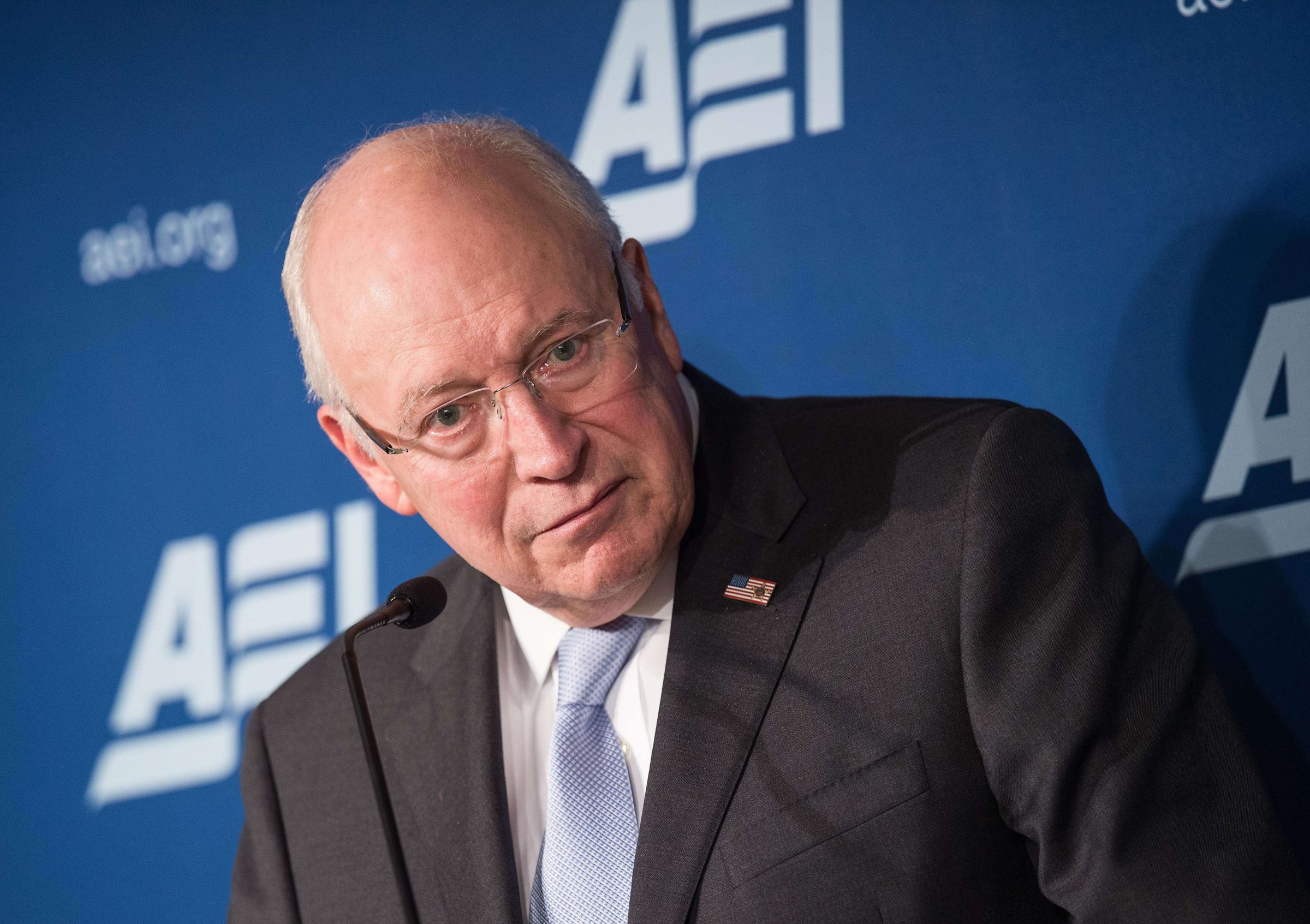
Former vice president Dick Cheney—living up to his reputation as the Darth Vader of American politics—warned Tuesday that the pending nuclear deal with Iran will give Tehran “the means to launch a nuclear attack on the U.S. homeland.”
But with ultimate congressional assent for the deal all but assured, Cheney’s amped-up rhetoric seemed to mark a last-ditch, albeit doomed, effort to derail the accord, which the U.S. and five other nations have tentatively struck with Iran.
Strikingly, Cheney’s warning came 13 years to the day that he declared Iraq’s Saddam Hussein a threat because Baghdad was seeking “aluminum tubes” to help it build nuclear weapons. That charge turned out to be false, a fact discovered only after the U.S. invaded Iraq, setting off a series of aftershocks that has plunged the Middle East into turmoil.
While Cheney’s charge about Iran was stark, it also contains an element of truth. “I know of no nation in history that has agreed to guarantee that the means of its own destruction will be in the hands of another nation, particularly one that is hostile,” Cheney, also an ex-defense secretary, told an audience at the conservative American Enterprise Institute in Washington, D.C. He called the deal “madness.”
Cheney’s point is well-taken. The deal will ratify Iran as a nuclear-threshold state. That wasn’t Obama’s original goal. “The deal we’ll accept is—they end their nuclear program,” he said in a 2012 debate with GOP presidential candidate Mitt Romney. “It’s very straightforward.” But the deal on the table merely delays Iran’s ability to build an atomic weapon from the current two to three months to a year or more.
The Obama Administration counters that the pending deal is the best one possible. The allies—Britain, China, France, Germany and Russia—agree. So do Republican national-security heavyweights like retired Army general Colin Powell, who served as secretary of state in the George W. Bush White House, and Richard Lugar, a retired Indiana senator and former chairman of the foreign-relations committee.
Read about changes to Time.com
U.S. officials, from presidents on down, have repeatedly pledged that Iran will not be permitted to possess a nuclear weapon. That means, if it has to, the U.S. will attack Iranian nuclear-development efforts if Tehran attempts to “break out” of the limits set by the accord.
But Cheney is nothing if not pessimistic. When he says the proposed pact gives Iran the “means to launch a nuclear attack on the U.S. homeland,” he is betting not only that Iran would launch such a suicidal strike, but that its scientists and engineers could secretly conduct the extensive work needed to build a nuclear warhead, shrink it so that it fits atop a missile, and then target the U.S. with it. Each of those steps is technologically challenging, and chances are Iran couldn’t accomplish them in decades—even if it wanted to.
There was a sense of déjà vu to the speech, interrupted by a protester shouting that Cheney was a “war criminal” for his push to invade Iraq while service as George W. Bush’s vice president. In fact, Cheney’s speech Tuesday came 13 years to the day after publication of an article on the front page of the New York Times warning of Iraq’s quest for a nuclear weapon:
More than a decade after Saddam Hussein agreed to give up weapons of mass destruction, Iraq has stepped up its quest for nuclear weapons and has embarked on a worldwide hunt for materials to make an atomic bomb, Bush administration officials said today. In the last 14 months, Iraq has sought to buy thousands of specially designed aluminum tubes, which American officials believe were intended as components of centrifuges to enrich uranium. American officials said several efforts to arrange the shipment of the aluminum tubes were blocked or intercepted but declined to say, citing the sensitivity of the intelligence, where they came from or how they were stopped.
Hours later, Cheney himself confirmed the newspaper account in a television interview. Six months after that, the U.S. invaded Iraq in a vain effort to destroy Saddam’s nuclear program—because he didn’t have one.
More Must-Reads From TIME
- The 100 Most Influential People of 2024
- Coco Gauff Is Playing for Herself Now
- Scenes From Pro-Palestinian Encampments Across U.S. Universities
- 6 Compliments That Land Every Time
- If You're Dating Right Now , You're Brave: Column
- The AI That Could Heal a Divided Internet
- Fallout Is a Brilliant Model for the Future of Video Game Adaptations
- Want Weekly Recs on What to Watch, Read, and More? Sign Up for Worth Your Time
Contact us at letters@time.com